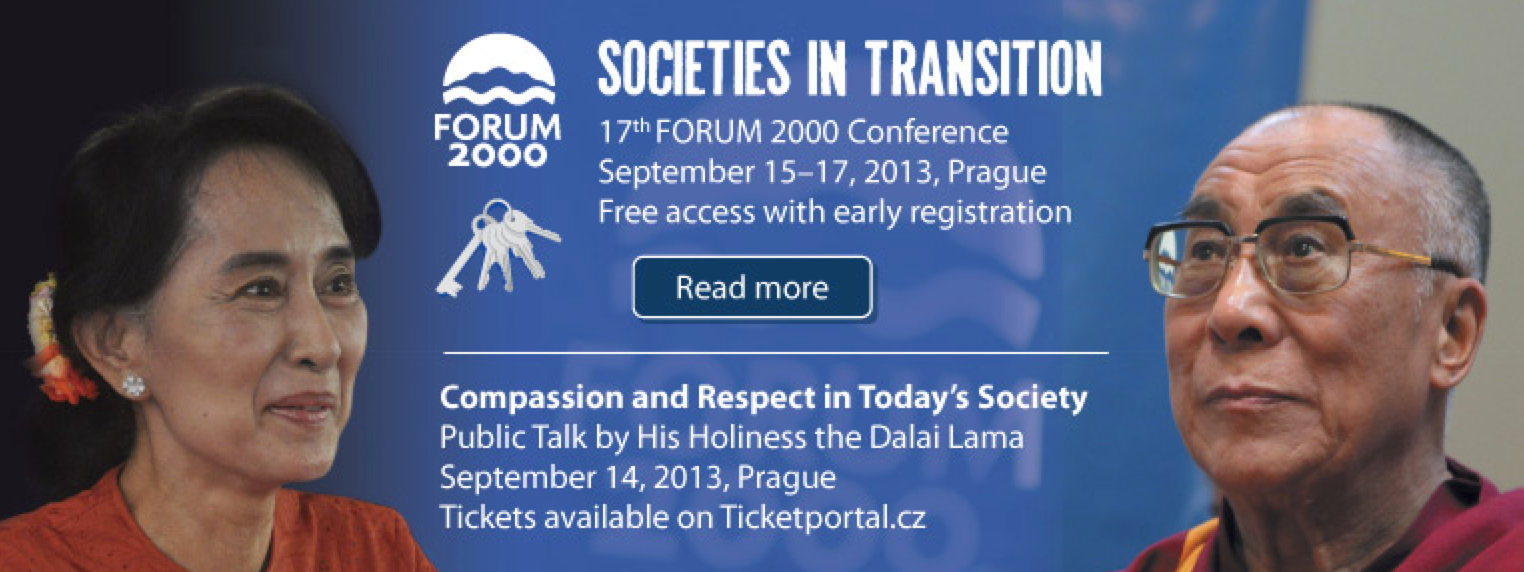More than a decade ago Vaclav Havel’s book “The Power of the Powerless” fell into my hands for the first time. It came wrapped in a page of my country’s official newspaper, the Cuban Communist Party’s daily. Covering books was one of the many ways of hiding inconvenient texts forbidden by the government from the eyes of informants and the political police. In this way we had been reading, clandestinely, stories of what happened with the fall of the Berlin wall, the end of the Soviet Union, the Czech transformation, and all the other events in Eastern Europe. We knew about all these transitions, some more traumatic, others more successful and many of us dreamed that the transformation would soon come to our Island in the Caribbean, subjected to more than five decades of totalitarianism. But the transition most yearned for remains to be built. The processes of change don’t come alone, citizens have to spark them.
Today I am here, in the very city where Vaclav Havel was born, this man who summed up as few others have the spirit of the transition. I am also facing many people who have encouraged, pushed and personified the desire for change in their respective societies. Because the search for horizons of greater freedom is an essential part of human nature. Thus, it is twisted and unnatural for regimes to try to perpetuate themselves over the people, to immobilize them, to take from them the desire to dream that the future will be better.
In Vaclav Havel’s era, for Lech Walesa, and for so many other dissidents of the communist regimes, methods of peaceful struggle were effective: labor unions, even artistic creation was put to use for change. Now technology has also come to our aid. Every time I use a cellphone to denounce an arrest or write in my blog about the difficult situation of so many Cuban families, I think about how these gadgets with keyboards and screens would have helped the activists of previous decades. How far they could have cast their voices and projects had they had the social networks and all of cyberspace that opens today before our eyes. The Web 2.0 has been, without a doubt, a boost for the spirit of transition that dwells within us all.
Today, for the first time in Forum 2000, there is a small representation of Cuban activists. After decades of island confinement in which our country’s regime blocked many dissidents, independent journalists and alternative bloggers from traveling abroad, we have achieved the small victory of their opening to us the national frontiers. It is a limited victory, incomplete, because many others are still missing. Freedom of expression, respect for free opinion, the ability to choose for ourselves who represents us, the end of those acts of hate called “repudiation rallies” that still persist on the streets of Cuba against those who think differently from the ideology in power. However, many of us feel that Cuba is in transition. A transition that is happening in a more irreversible and instructive manner: from within the individual, in the conscience of a people.
In this transition we see the influence of many of you. Many of you who have arrived first to freedom and who have found that it is not the end of the road, rather freedom brings new problems, new responsibilities, new challenges. You who, in your respective countries, kept alive the breath of change, even risking your names and your lives.
Like the spirit of transition contained in that book by Vaclav Havel, wrapped — to disguise it — with the pages of the most stagnant and reactionary official newspaper you can possibly imagine. Like that book, the transition can be prohibited, censored, decreed to be almost a dirty word, postponed and demonized… but it will always arrive.
The post Mis palabras en el Forum 2000 appeared first on Generación Y by Yoani Sánchez.
16 September 2013

